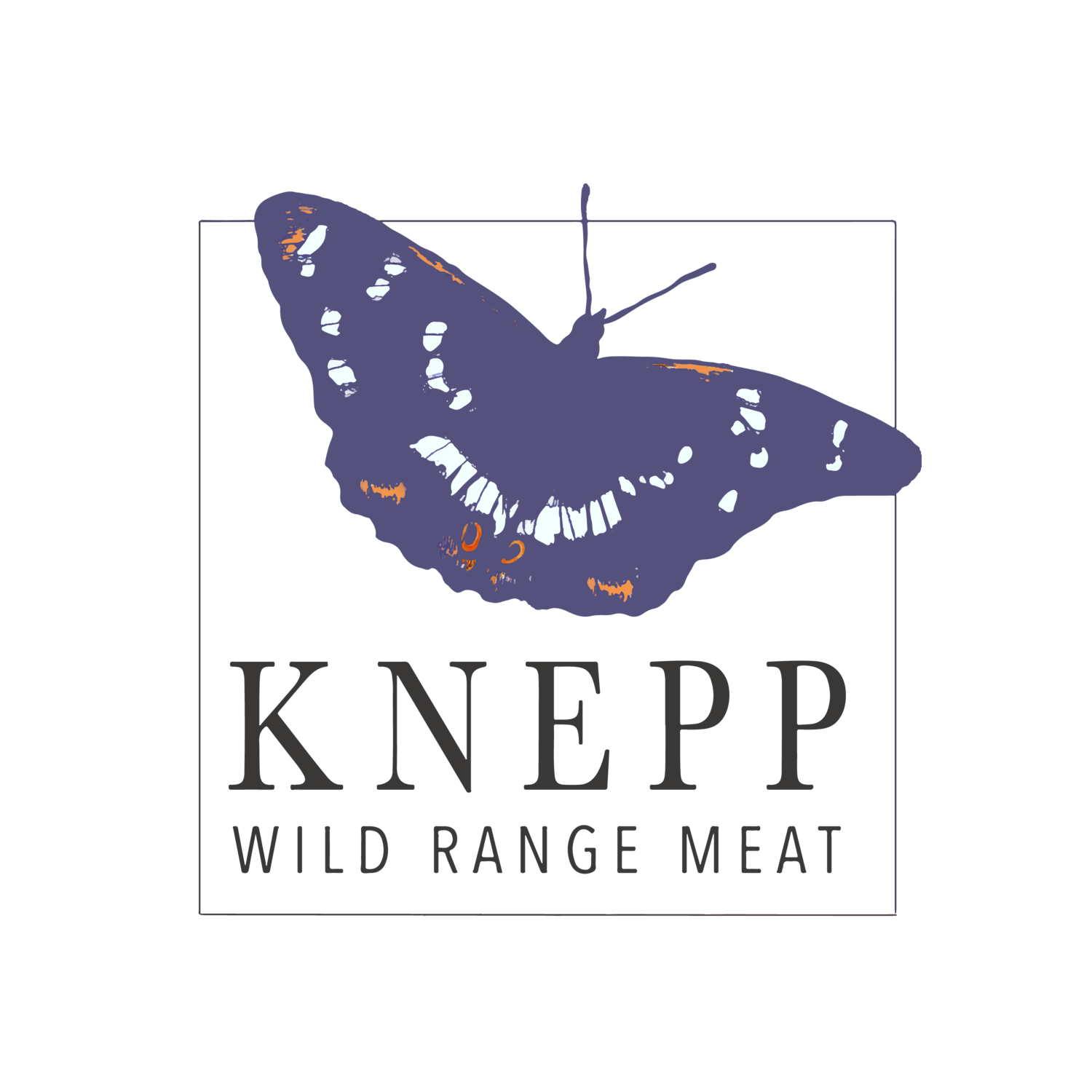The benefits of a pasture-fed diet
Our meat is positively good for you
Red meat and animal fats have had bad press in recent years but this is because, nowadays, the meat we eat tends to come from animals that are either fed or ‘finished’ on grain.
Herbivores that are made to eat grain and ‘performance feeds’ with added proteins and molasses produce a type of fat that is not only bad for them, it is bad for us. Globally, our consumption of grain-fed meat and dairy products is contributing to modern epidemics of diabetes, obesity, heart disease and high cholesterol.
Herbivores like cows and deer have evolved to eat grass and natural vegetation. Even pigs eat grass in the summer. Studies in the US and in the UK have proved that meat, fat and dairy products from animals that are fed the old way, on permanent pasture, are positively good for us because they are:
Low in the saturated fats associated with heart attacks and strokes
High in total omega-3 fatty acids, which feed the brain, and protect against heart and neurological diseases
Present omega-3 fatty acids in a balanced ratio with omega-6 fatty acids (unlike vegetable oils)
High in conjugated linoleic acid (CLA) which fights cancer and diabetes, benefits the immune and inflammatory system, and reduces body fat and risk of heart attack
High in beta carotene, vitamin E and the B vitamins thiamine and riboflavin
High in calcium, magnesium and potassium
The implications of these findings are enormous. We should not be cutting out animal fats from our diet, as almost all recent medical advice insists. We should simply be taking care that we’re eating the right sort of animal fat – 100% pasture-fed. And this goes for milk and dairy products too.
It’s also good for the planet
Permanent pasture is one of the most effective systems of carbon sequestration we have on the planet.
A low density of free-roaming herbivores like we have at Knepp has a dynamic effect on the landscape. Their behaviour and different grazing techniques create a mosaic of habitats, from groves and thorny thickets to open grassland, reed-beds and water meadows, providing fantastic opportunities for wildlife. Since we began this extensive grazing system at Knepp in 2001 numerous rare species of birds, bats and butterflies have begun to breed here. By eating our meat you are contributing to nature conservation.
Because we’re not using any inputs – no fertilisers or other chemicals, no high energy feeding systems or farm machinery – our method of meat production is sustainable, low cost and very low carbon.
It’s good for the animals
Because they’re eating what nature intended them to eat, our animals are happy and healthy. They have free range of 3,500 acres of re-wilded land, giving them a smorgasbord of organic herb-rich pasture, as well as bark and leaves to browse on – just as their ancestors would have done.
They have excellent immune systems, unlike animals reared in intensive systems. And they don’t have permanent indigestion because their stomachs are being asked to cope with food they were never designed to eat.
Our longhorn cattle, Tamworth pigs, red and fallow deer run in natural herds of all ages and have free rein to wallow, play, crash through the scrub and generally behave as they would in the wild. Calves and piglets suckle for as long as their mothers will tolerate them, which is sometimes when they’re as big as their mothers!
And it tastes good, too
Because they are free to browse and are ‘slow-grown’ – i.e. not fattened unnaturally fast on grain and protein – the meat from our animals is denser and richer, with that characteristic ‘marbling’ of fat which gives fantastic texture and taste.
Old English longhorns produce exceptional beef. In his ‘Perfection’ series of programmes for TV in 2013, chef Heston Blumenthal chose longhorn above all other traditional beef, including Aberdeen Angus and Japanese Kobe, as the best tasting grassfed steak in the world.
Our Tamworth pigs hoover up a feast of acorns in the autumn, which gives our pork a flavour similar to wild boar. It’s entirely unlike the pale white meat you can buy in supermarkets, but darker – as pork used to be.
Our meat is matured on the bone in the traditional way in a chiller – the beef for a minimum of 28 days, the venison for a minimum of 7 days – for extra tenderness and flavour.
